Arts & Entertainment
Fiennes’ fine film
Actor-turned-director gives bold, homoerotic spin on Shakespeare classic

The final image in Ralph Fiennes’ fine adaptation of Shakespeare’s “Coriolanus” is riveting — two men in a war-torn landscape locked in a deadly embrace. Their final coupling sums up the passionate love-hate relationship and the series of personal and political betrayals that have led them to this fatal climax.
One of the men is the Roman general Caius Martius (played by director Fiennes) and the other is his sworn enemy, the Volscian leader Tullus Aufidius (played with brooding intensity by Gerard Butler, probably best known to gay audiences as the title character in the movie version of “The Phantom of the Opera” and the buff, scantily clad Spartan general in “300.”) When the movie opens, Martius is at the top of his game. He brutally but effectively suppresses an uprising by the starving plebians and almost single-handedly halts an attack on Rome by the Volscian army. (He is given the honorific Coriolanus to mark his conquest of the Volscian city of Corioles.) The tables turn, however, when his mother and their well-meaning patrician friends try to push the warrior into a political career. The skills that serve him so well on the battlefield (rage, invective, decisive action, foolhardy risk-taking) fail him in the public sphere. The fallen war hero is banished from Rome and joins forces with his former Volscian enemies.
Screenwriter John Logan (Gladiator) does an excellent job of streamlining and updating Shakespeare’s timeless and timely tale. He and Fiennes present the story in a modern-day setting yet retain the richness of Shakespeare’s language, story and characters. The text is tidily trimmed throughout, but the only major excision is the famous fable of the belly, a charming parable used to keep the lower classes in check. Several expository scenes and messenger speeches are transferred with great facility to television anchors and pundits (on the wittily named Fideles TV). Battle scenes were shot in Belgrade and most of the secondary roles are filled by Serbian actors. Cinematographer Barry Atkinson (who worked with Fiennes on the award-winning The Hurt Locker) captures the noise, rage, terror and brutality of contemporary warfare in horribly effective detail. The savage intensity of the battle scenes contrasts nicely with the suave treachery of the political scenes.
Fiennes and Logan also follow Shakespeare in highlighting the homosocial bonds between the politicians and the soldiers and the explicitly homoerotic nature of the relationship between Coriolanus and Aufidius. Soldiers routinely greet each other by declaring they are happier to see their returning colleagues than they ever were to see their wives. Politicians taunt each other with charges of feminine or boyish behavior. Aufidius declares that Coriolanus is his enemy, yet welcomes him gladly to the Volscian camp. Under Fiennes’ assured direction, the two men literally cannot keep their hands off each other, yet they cannot stop battling for dominance. Their smoldering glances burn up the screen and their scary fight scenes only stop when one of the participants loses consciousness.
Fiennes’ focus on the homosocial and misogynistic world of the battlefield and the halls of power (in this case, smoke-filled bars, marble hearing rooms and brightly lit television studios) give a clear context for Vanessa Redgrave’s chilling performance of Coriolanus’ monstrous mother Volumnia, clearly one of the most intelligent people in this Rome, but there she has no effective outlet for her brains or passion. Instead of participating in the great events at the Capitol, she is forced to watch them unfold on TV. Her thwarted ambition is poured into her son, an inadequate vessel for her grand dreams, and the result is tragedy. Redgrave shines in every scene, whether chastising her daughter-in-law for her fears, tenderly dressing her son’s wounds, attacking the opposition or pleading with her son to return to Rome. The picture of Redgrave as Volumnia giddily applauding her warrior son while wearing the same junior military uniform as her young grandson is an unforgettable image of the societal price of sexism.
The rest of the cast is also uniformly strong. Brian Cox (Menenius) and John Kani (Cominius) give nuanced performances as leaders of the patrician party and they are well matched by the oily Tribunes of the People, James Nesbitt (Sicinius) and Paul Jesson (Brutus). Newcomer Jessica Chastain (“The Help”), one of the breakout performers of 2011, makes a surprisingly vivid impression as Coriolanus’ wife Virgilia, who he describes as “my gracious silence.”
For many years, “Coriolanus” was rarely produced, although there has been a resurgence of interest in the play in recent years. Shakespeare’s tricky political tale is very well-served by first-time director Ralph Fiennes (who has played the role onstage). He deserves extra credit for highlighting the homoerotic undertones that many directors shy away from, especially since the end result is a nuanced and fascinating portrayal of thwarted ambition, military bravado and political treachery. This is not a warm and fuzzy film, but it is a compelling and important one.
a&e features
Transmission DC breathes new life into a storied sound space
A fresh home for boundary-pushing culture on H Street

Late last year, phoenix-style, a fresh home for boundary-pushing culture arose on the H Street corridor. Transmission DC – a queer, trans, and POC-owned, operated, and centered community-focused venue – powered on in the former home to the Rock & Roll Hotel (famously, not a hotel, but very much rock & roll). Transmission (1353 H St., N.E.) arrives secure in its mandate – or even birthright – to provide a place to celebrate creativity and music through a lens of inclusivity and respect.
Transmission’s team brings experience, but also representation. Owners/partners Kabir Khanna (who is also programming director), Katii B, Ellie McDyre, and Kelli Kerrigan together previously managed 618 productions, a venue in Chinatown, crafting “some of D.C.’s freakiest parties, raves, and mosh pits” they note.
They packed up operations last fall to a space curated specifically for D.C.’s underground music and culture scene, building their efforts in Chinatown to bring in more fans in queer and POC circles.
Transmission, Khanna points out, is built on DIY values. In the music scene, DIY means that promoters and organizers – often disconnected from the mainstream and part of marginalized communities – build shows and programs collaboratively, but independently from institutions, supporting each other as smaller, independent venues close. Here, Transmission aims to ensure that those putting together these underground inclusive shows have a more permanent and stable home, can have access to resources, and can provide more sustainable income to artists. “We’re trying to get more people to support and enjoy the music, and also give artists and organizers within the DIY community more structure and a larger cut,” says Khanna.
Khanna also notes that Transmission operates “under the principles of safety, inclusivity, and respect.” McDyre added that even at venues that claim inclusivity, that statement might not take place in practice. We’re “not just pitting up a rainbow flag,” says McDyre, but as some of the owners are trans and POC, audiences can see themselves reflected at the top.
Much like the DIY nature of the music community, the Transmission owners brought a DIY ethos to turning around their space.
In March 2020 – the height of COVID lockdowns – Rock & Roll Hotel suddenly shuttered, though not due to the pandemic; instead, the venue claimed that decreasing sales and increasing competition led to the closure. For 14 years, it was the central spot for cheap beer and lesser-known and celebrated acts. The space stood vacant for more than five years, until Transmission turned the power back on.
“When we got into the space, it was effectively abandoned for years,” says Khanna. “There was a ton of mold, and paint primer covering all surfaces. It was nearly falling apart.” Khanna noted that many music venues like this one, regardless of how well it was maintained, “get the shit kicked out of it,” given the nature of shows. The team called in mold removal contractors, ripped up most of the floorboards, and started fresh.
Transmission’s first floor is styled as a stripped-down black box: the better to take in the music. “It’s minimal on purpose to act as a canvas for set design and music,” without a specific aesthetic, says Khanna. Moving upstairs, the second floor has been opened up, removing some walls, and now has a larger dance area than the first floor. Beyond the first two performance levels, and a holdover from Rock & Roll Hotel, is the rooftop. Though without a stage, the rooftop space is filled with murals splashed across the walls, with a full bar. Transmission’s current capacity is 496, but the team is looking to grow that number. Transmission will also leverage the full kitchen that Rock & Roll Hotel operated, bringing in Third Hand Kitchen to offer a variety of food, including vegan and vegetarian options.
Khanna pointed out an upcoming show reflective of Transmission’s inclusive ethos: Black Techo Matters on Feb. 27. The event is set to be “a dynamic, collaborative night of underground electronic music celebrating Black History Month.” Khanna says that techno came from Black music origins, and this event will celebrate this genesis with a host of artists, including DJ Stingray 313, Carlos Souffront, and Femanyst.
Movies
Moving doc ‘Come See Me’ is more than Oscar worthy
Poet Laureate Andrea Gibson, wife negotiate highs and lows of terminal illness

When Colorado Poet Laureate Andrea Gibson died from ovarian cancer in the summer of 2025, the news of their passing may have prompted an outpouring of grief from their thousands of followers on social media, but it was hardly a surprise.
That’s because Gibson – who had risen to both fame and acclaim in the early 2000s with intense live performances of their work that made them a “superstar” at Poetry Slam events – had been documenting their health journey on Instagram ever since receiving the diagnosis in 2021. During the process, they gained even more followers, who were drawn in by the reflections and explorations they shared in their daily posts. It was really a continuation, a natural evolution of their work, through which their personal life had always been laid bare, from the struggles with queer sexuality and gender they experienced in their youth to the messy relationships and painful breakups of their adult life; now, with precarious health prohibiting a return to the stage, they had found a new platform from which to express their inner experience, and their fans – not only the queer ones for whom their poetry and activism had become a touchstone, but the thousands more who came to know them through the deep shared humanity that exuded through their online presence – were there for it, every step of the way.
At the same time, and in that same spirit of sharing, there was another work in progress around Gibson: “Come See Me in the Good Light,” a film conceived by their friends Tig Notaro and Stef Willen and directed by seasoned documentarian Ryan White (“Ask Dr. Ruth”, “Good Night, Oppy”, “Pamela, a Love Story”), it was filmed throughout 2024, mostly at the Colorado home shared by Gibson and their wife, fellow poet Megan Falley, and debuted at the 2025 Sundance Film Festival before a release on Apple TV in November. Now, it’s nominated for an Academy Award.
Part life story, part career retrospective, and part chronicle of Gibson and Falley’s relationship as they negotiate the euphoric highs and heartbreaking lows of Gibson’s terminal illness together, it’s not a film to be approached without emotional courage; there’s a lot of pain to be vicariously endured, both emotional and physical, a lot of hopeful uplifts and a lot of crushing downfalls, a lot of spontaneous joy and a lot of sudden fear. There’s also a lot of love, which radiates not only from Gibson and Falley’s devotion and commitment to being there for each other, no matter what, but through the support and positivity they encounter from the extended community that surrounds them. From their circle of close friends, to the health care professionals that help them navigate the treatment and the difficult choices that go along with it, to the extended family represented by the community of fellow queer artists and poets who show up for Gibson when they make a triumphant return to the stage for a performance that everyone knows may well be their last, nobody treats this situation as a downer. Rather, it’s a cause to celebrate a remarkable life, to relish friendship and feelings, to simply be present and embrace the here and now together, as both witness and participant.
At the same time, White makes sure to use his film as a channel for Gibson’s artistry, expertly weaving a showcase for their poetic voice into the narrative of their survival. It becomes a vibrant testament to the raw power of their work, framing the poet as a seminal figure in a radical, feminist, genderqueer movement which gave voice to a generation seeking to break free from the constraints of a limited past and imagine a future beyond its boundaries. Even in a world where queer existence has become – yet again – increasingly perilous in the face of systemically-stoked bigotry and bullying, it’s a blend that stresses resilience and self-empowerment over tragedy and victimhood, and it’s more than enough to help us find the aforementioned emotional courage necessary to turn what is ultimately a meditation on dying into a validation of life.
That in itself is enough to make “Come See Me in the Good Light” worthy of Oscar gold, and more than enough to call it a significant piece of queer filmmaking – but there’s another level that distinguishes it even further.
In capturing Gibson and Falley as they face what most of us like to think of as an unimaginable future, White’s quietly profound movie puts its audience face-to-face with a situation that transcends all differences not only of sexuality or gender, but of race, age, or economic status as well. It confronts us with the inevitability few of us are willing to consider until we have to, the unhappy ending that is rendered certain by the joyful beginning, the inescapable conclusion that has the power to make the words “happily ever after” feel like a hollow promise. At the center of this loving portrait of a great American artist is a universal story of saying goodbye.
Yes, there is hope, and yes, good fortune often prevails – sometimes triumphantly – in the ongoing war against the cancer that has come to threaten the palpably genuine love this deeply-bonded couple has found together; but they (and we) know that, even in the best-case scenario, the end will surely come. All love stories, no matter how happy, are destined to end with loss and sorrow; it doesn’t matter that they are queer, or that their gender identities are not the same as ours – what this loving couple is going through, together, is a version of the same thing every loving couple lucky enough to hold each other for a lifetime must eventually face.
That they meet it head on, with such grace and mutual care, is the true gift of the movie.
Gibson lived long enough to see the film’s debut at Sundance, which adds a softening layer of comfort to the knowledge we have when watching it that they eventually lost the battle against their cancer; but even if they had not, what “Come See Me in the Good Light” shows us, and the unflinching candor with which it does so, delivers all the comfort we need.
Whether that’s enough to earn it an Oscar hardly matters, though considering the notable scarcity of queer and queer-themed movies in this year’s competition it might be our best shot at recognition.
Either way, it’s a moving and celebratory film statement with the power to connect us to our true humanity, and that speaks to a deeper experience of life than most movies will ever dare to do.
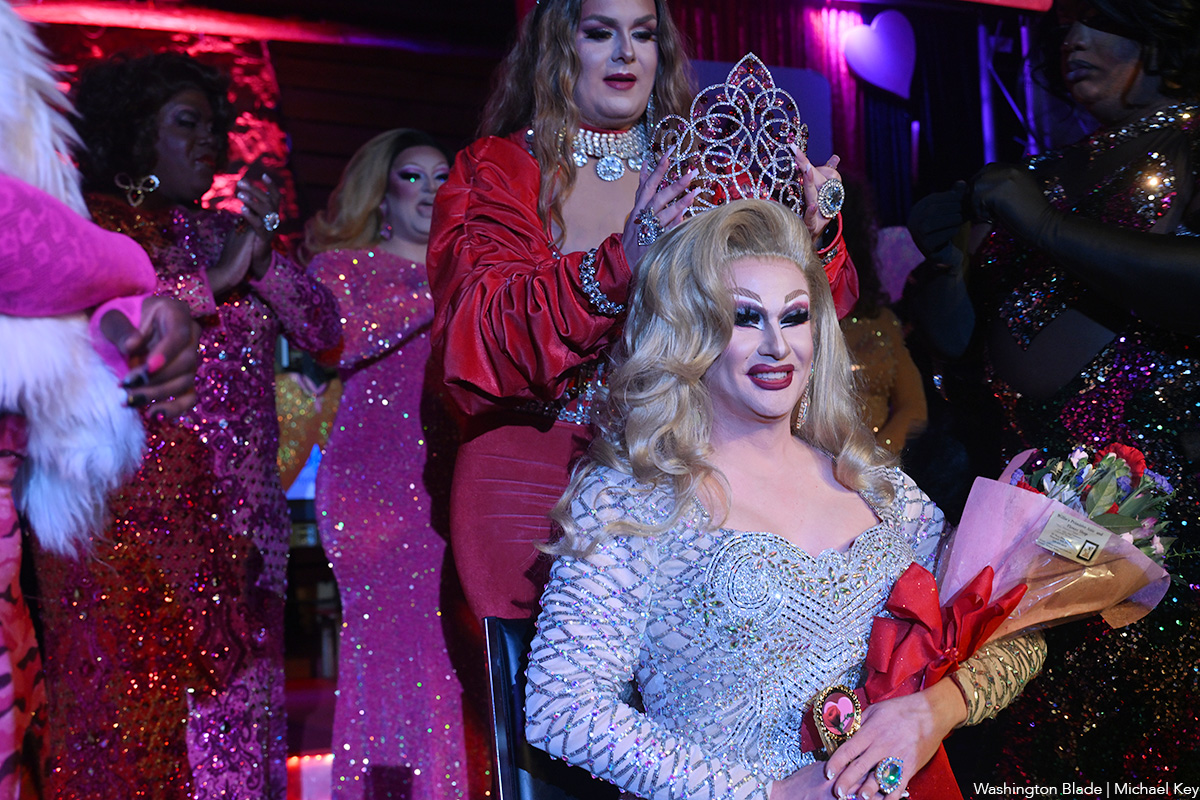
The 44th annual Queen of Hearts pageant was held at The Lodge in Boonsboro, Md. on Friday, Feb. 20. Six contestants vied for the title and Bev was crowned the winner.
(Washington Blade photos by Michael Key)
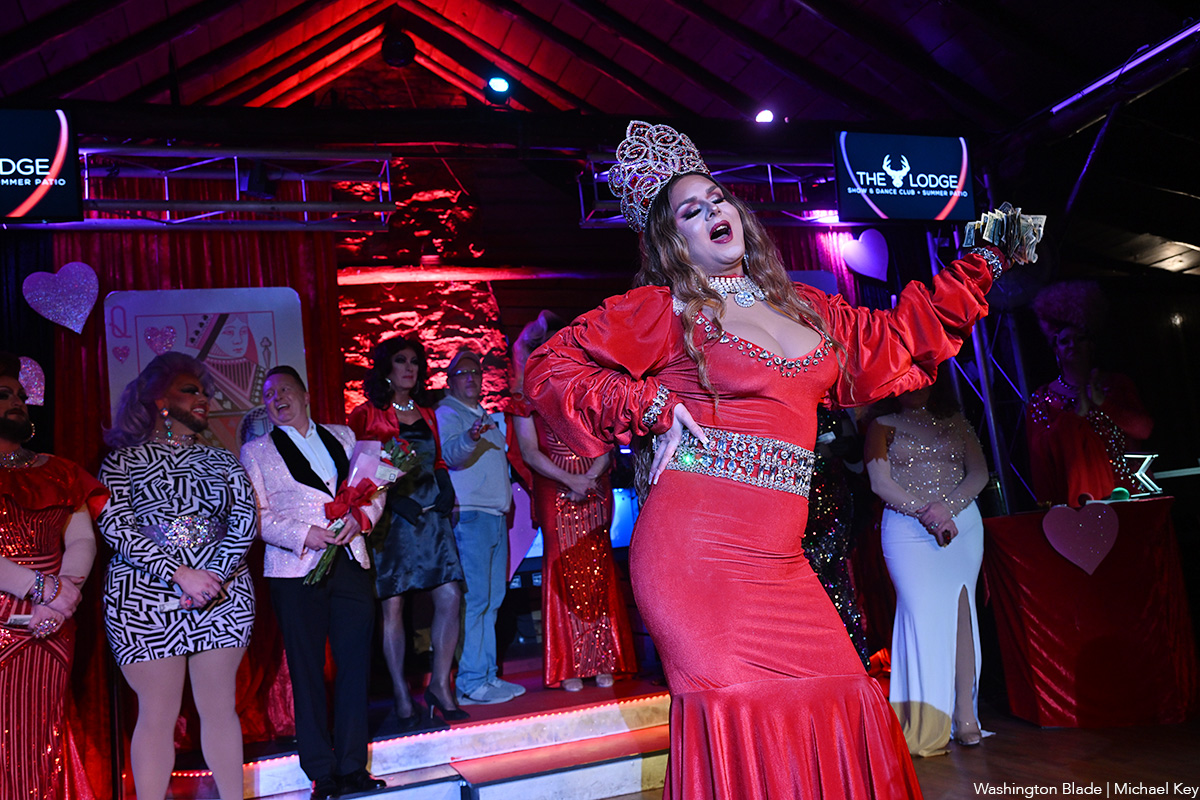
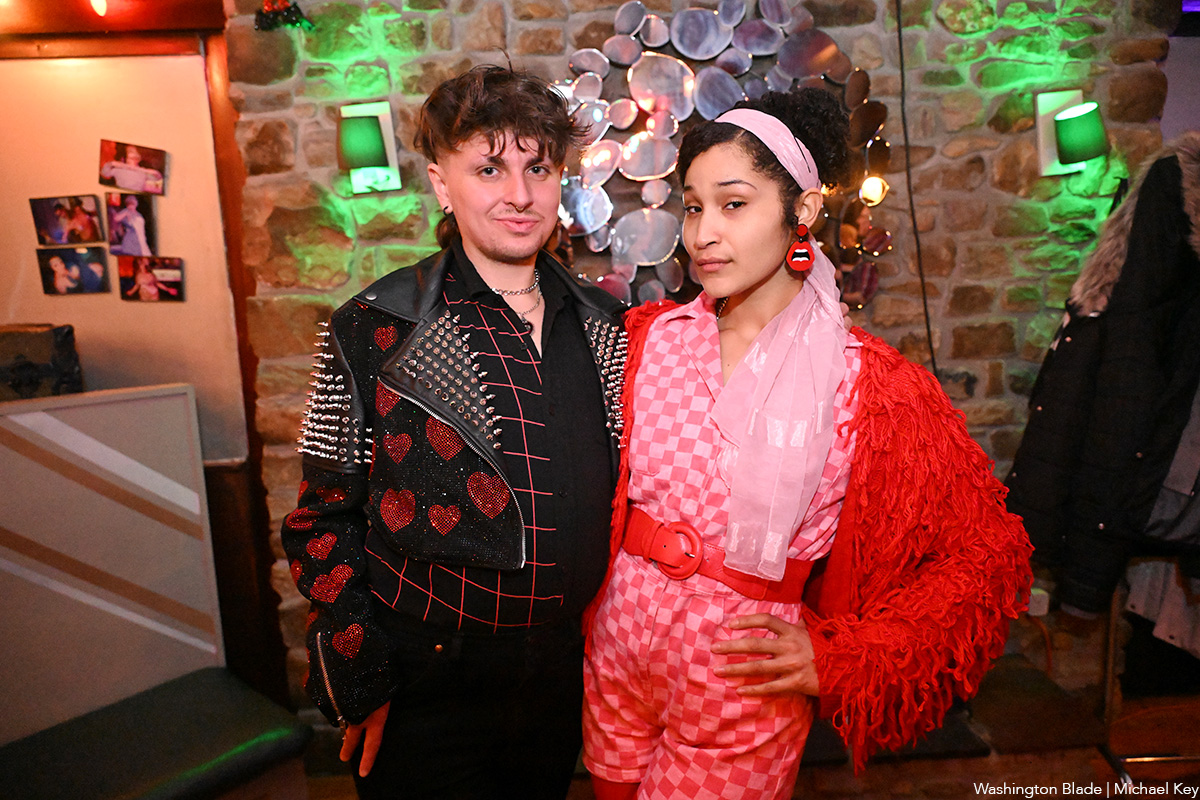
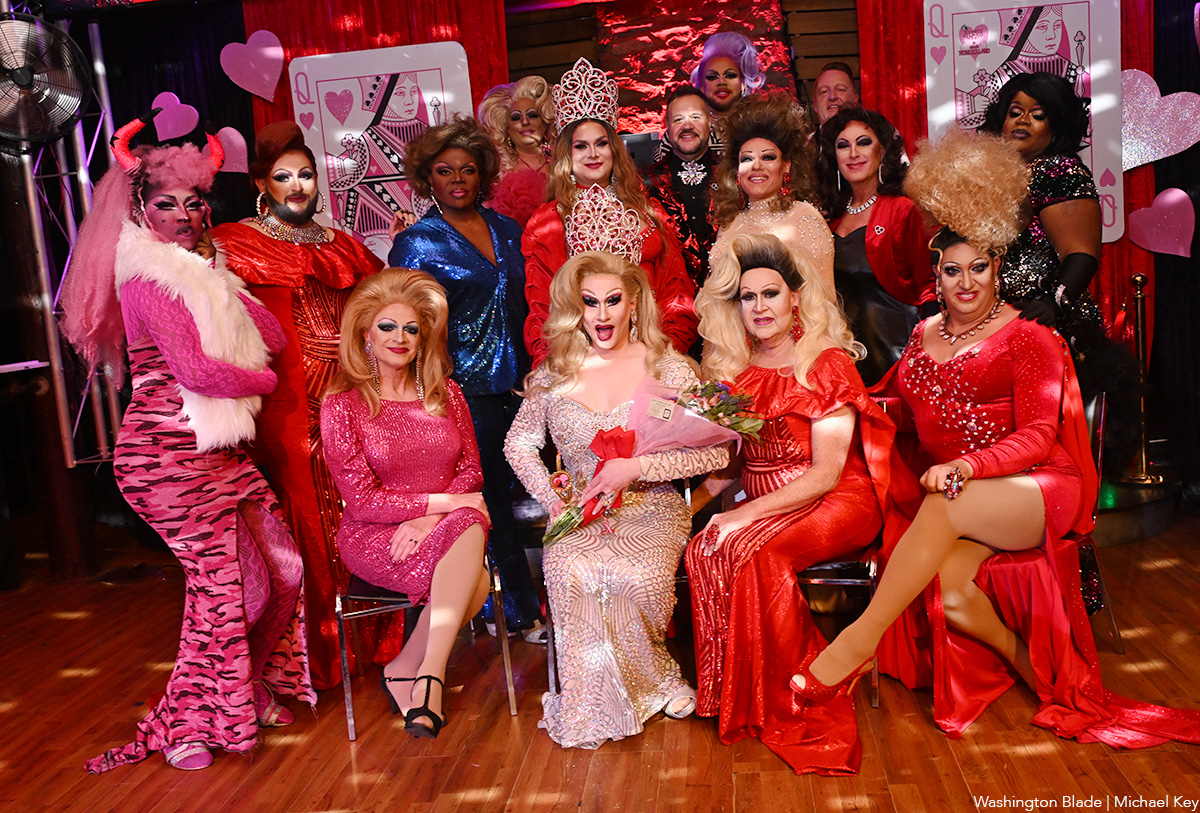
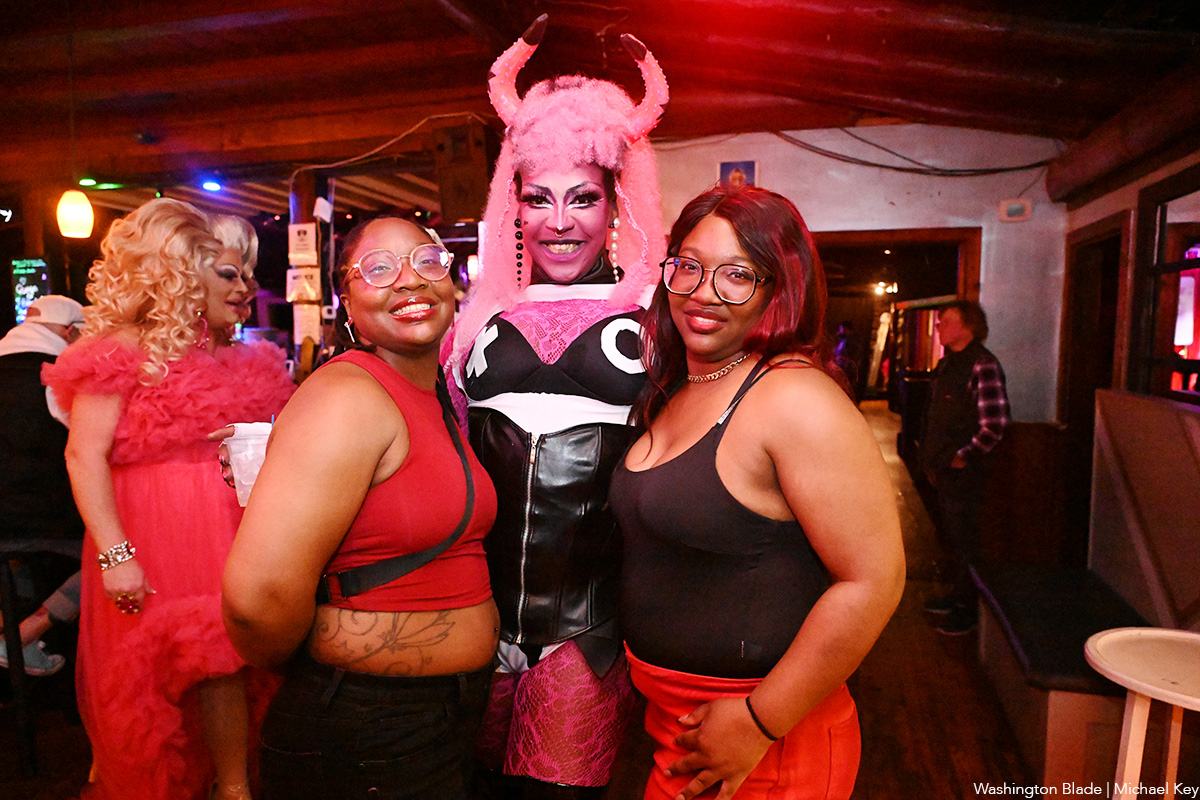
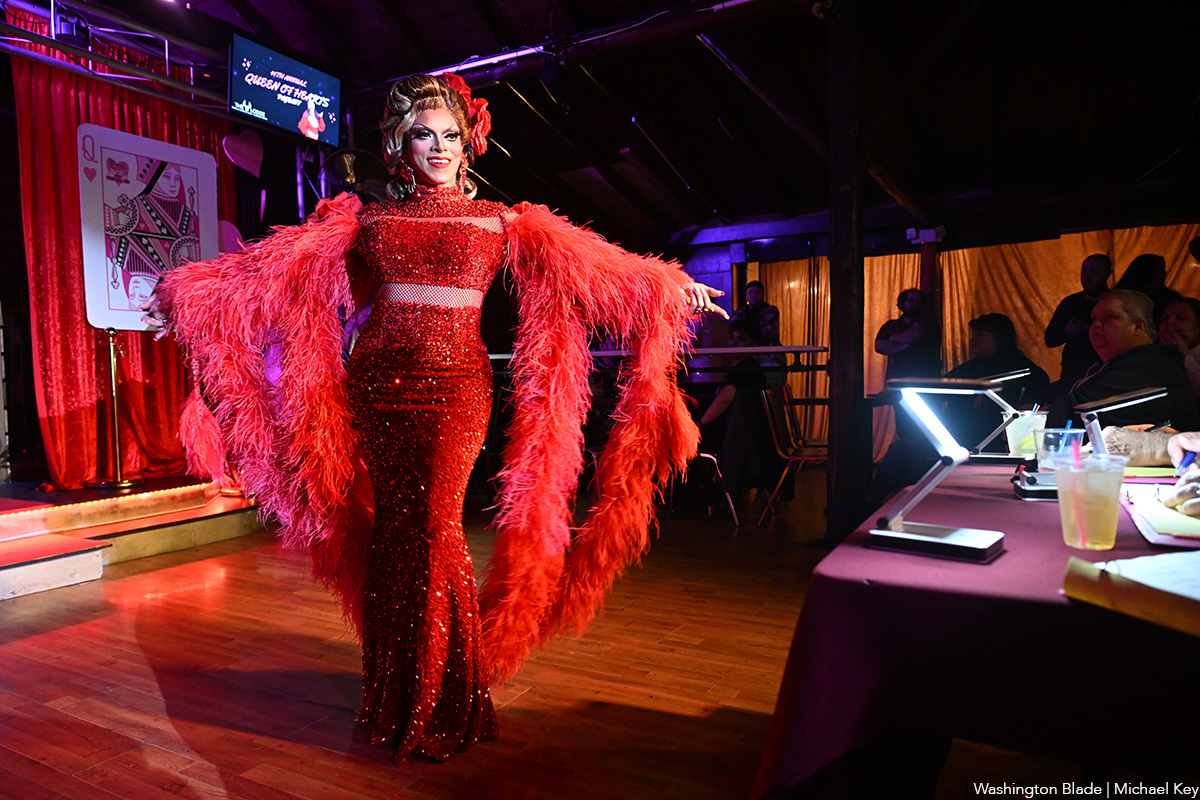
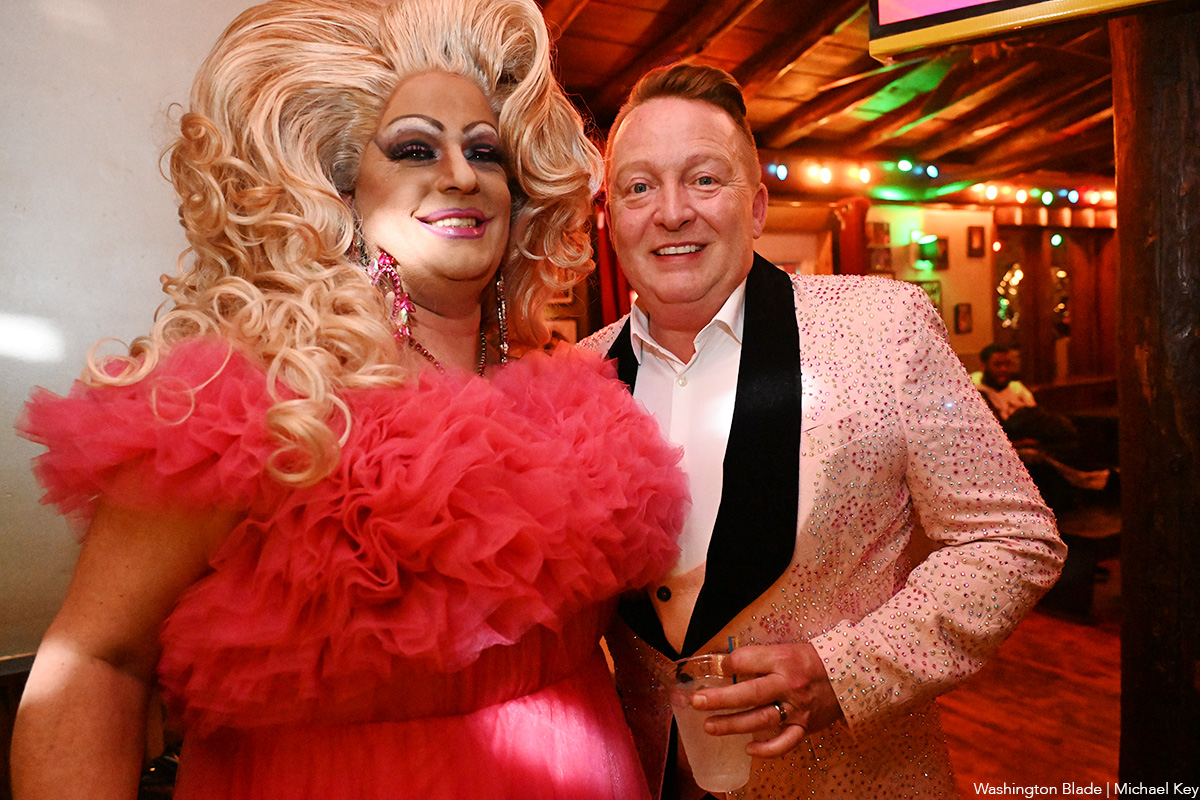
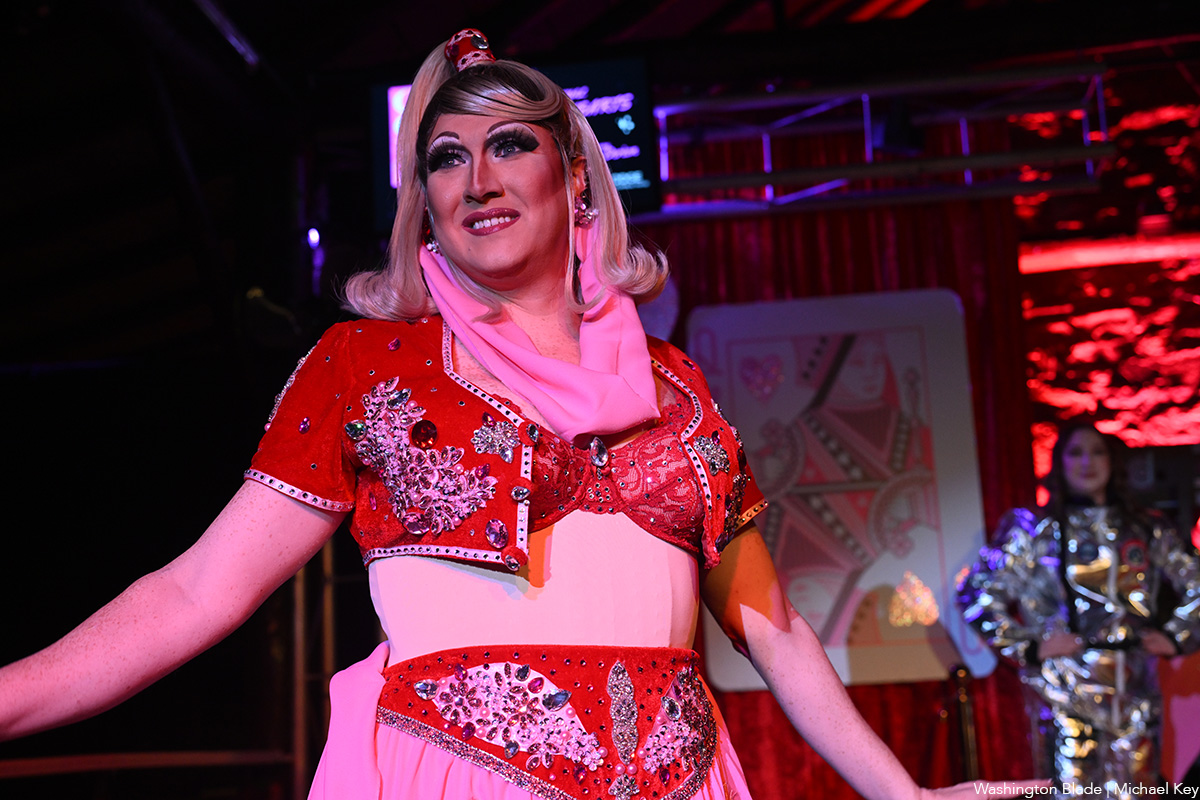

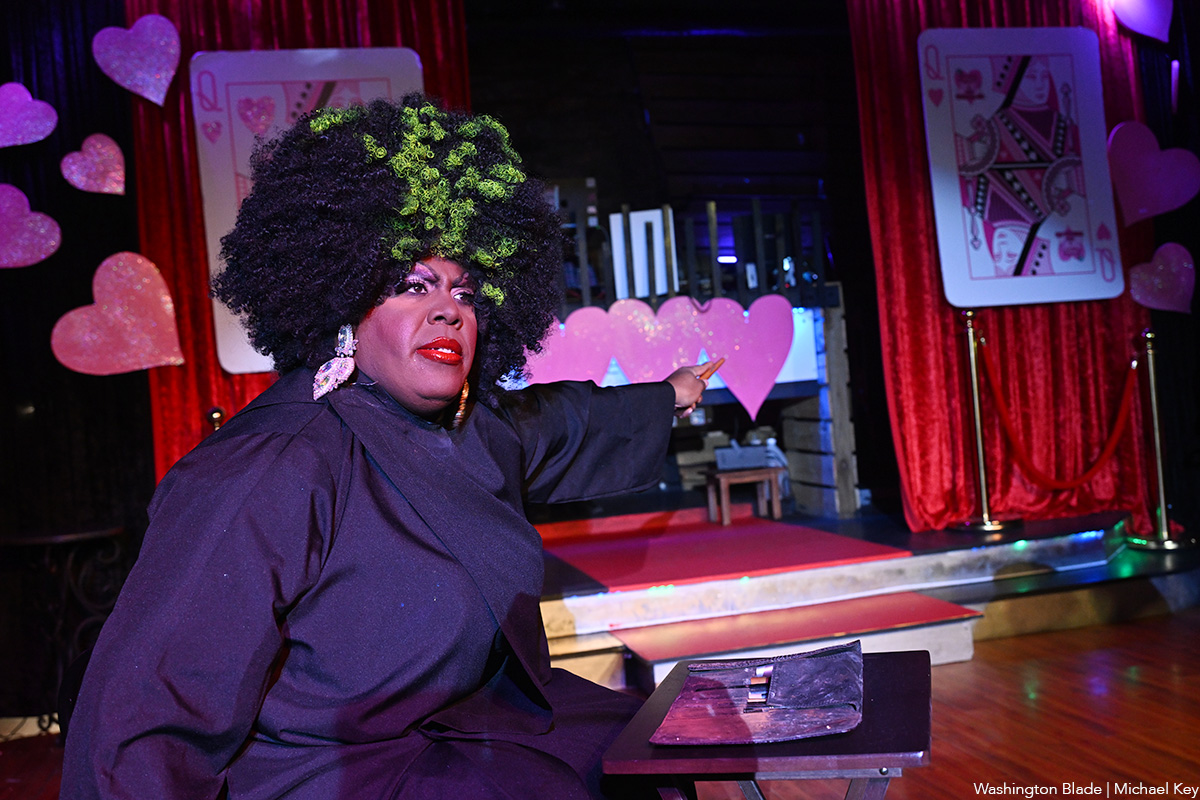
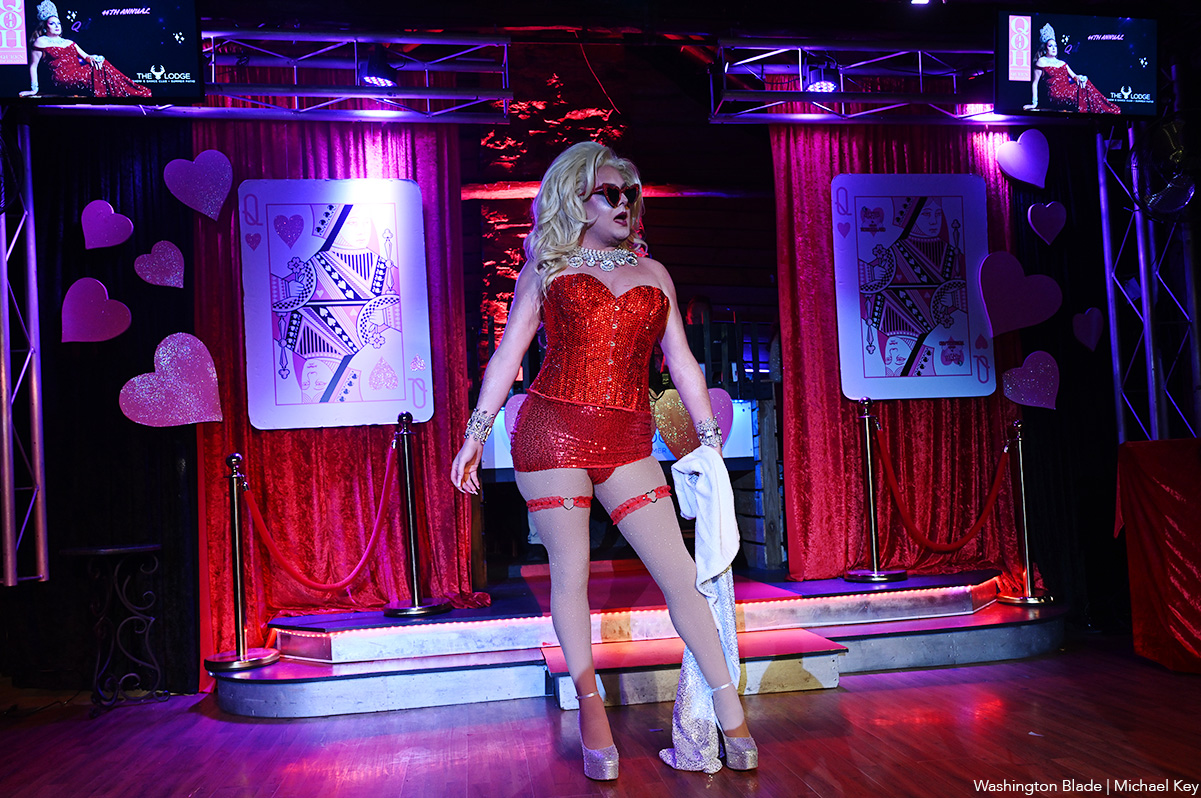
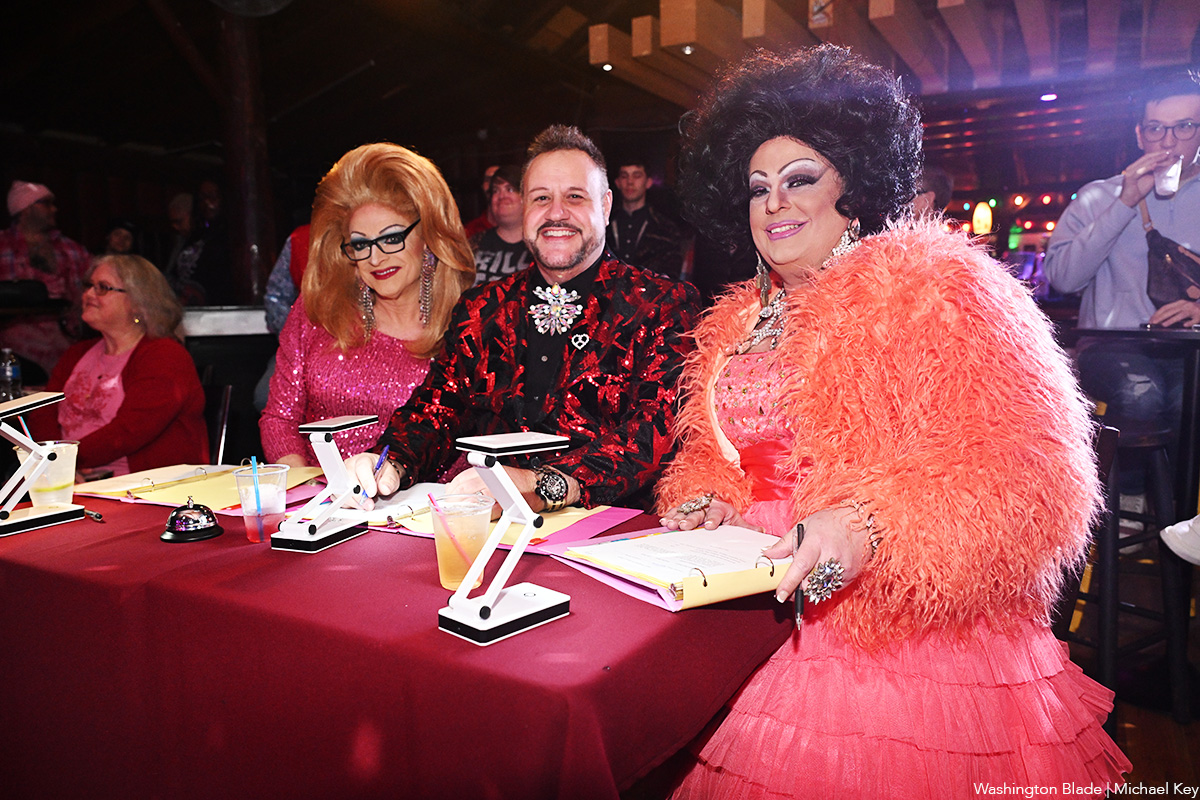
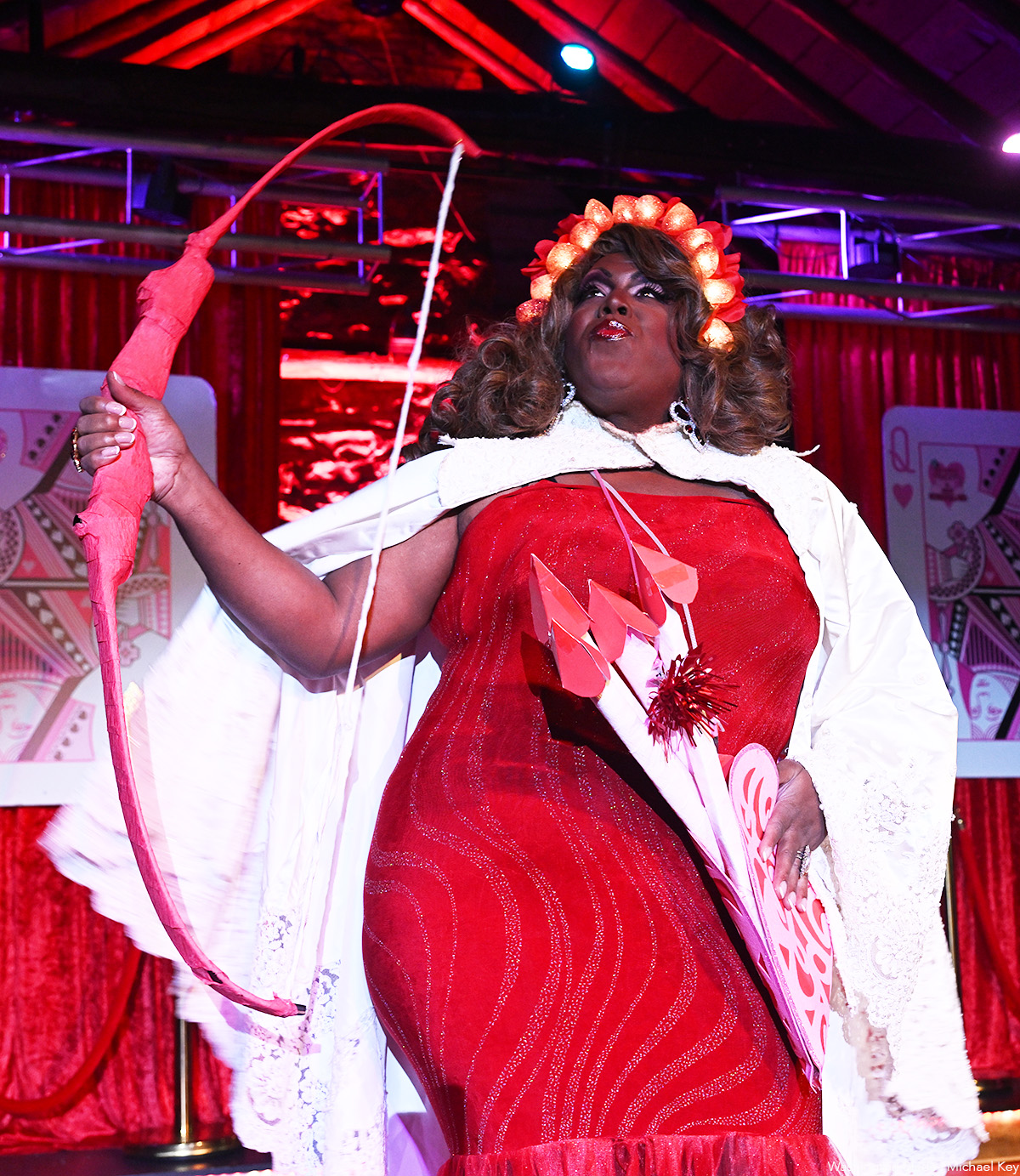
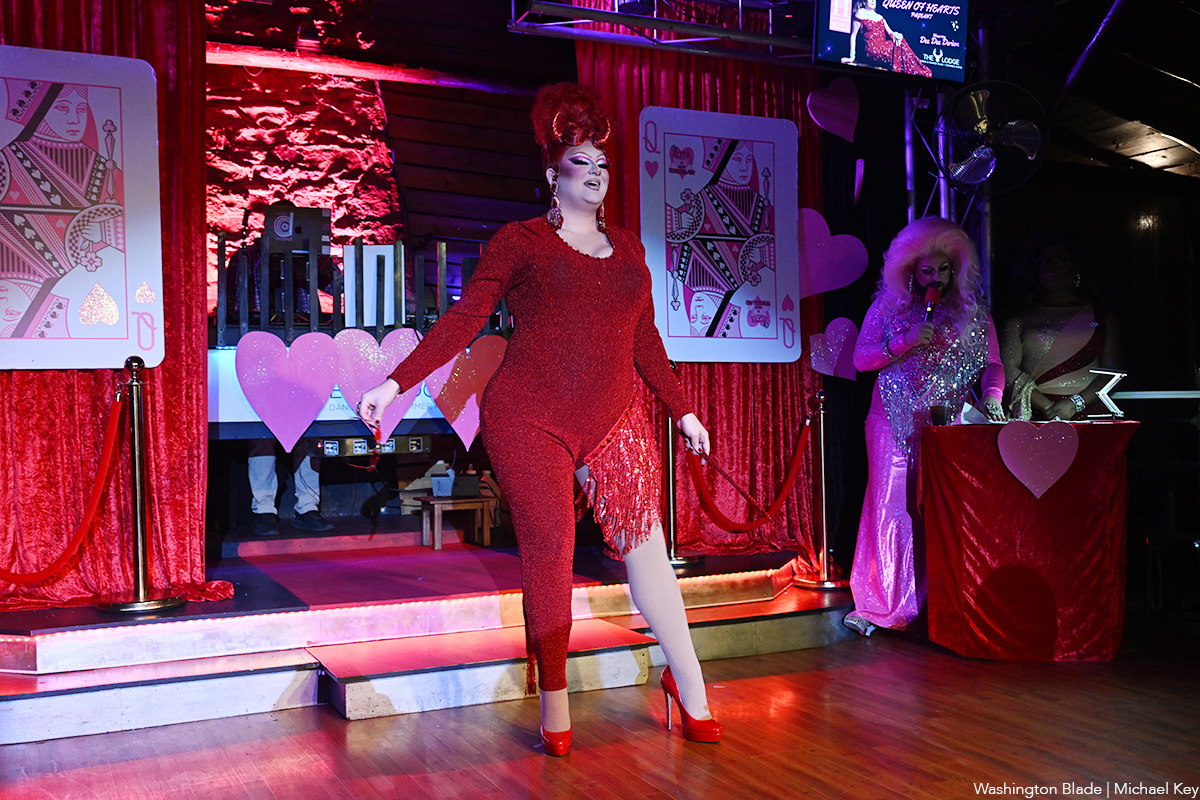
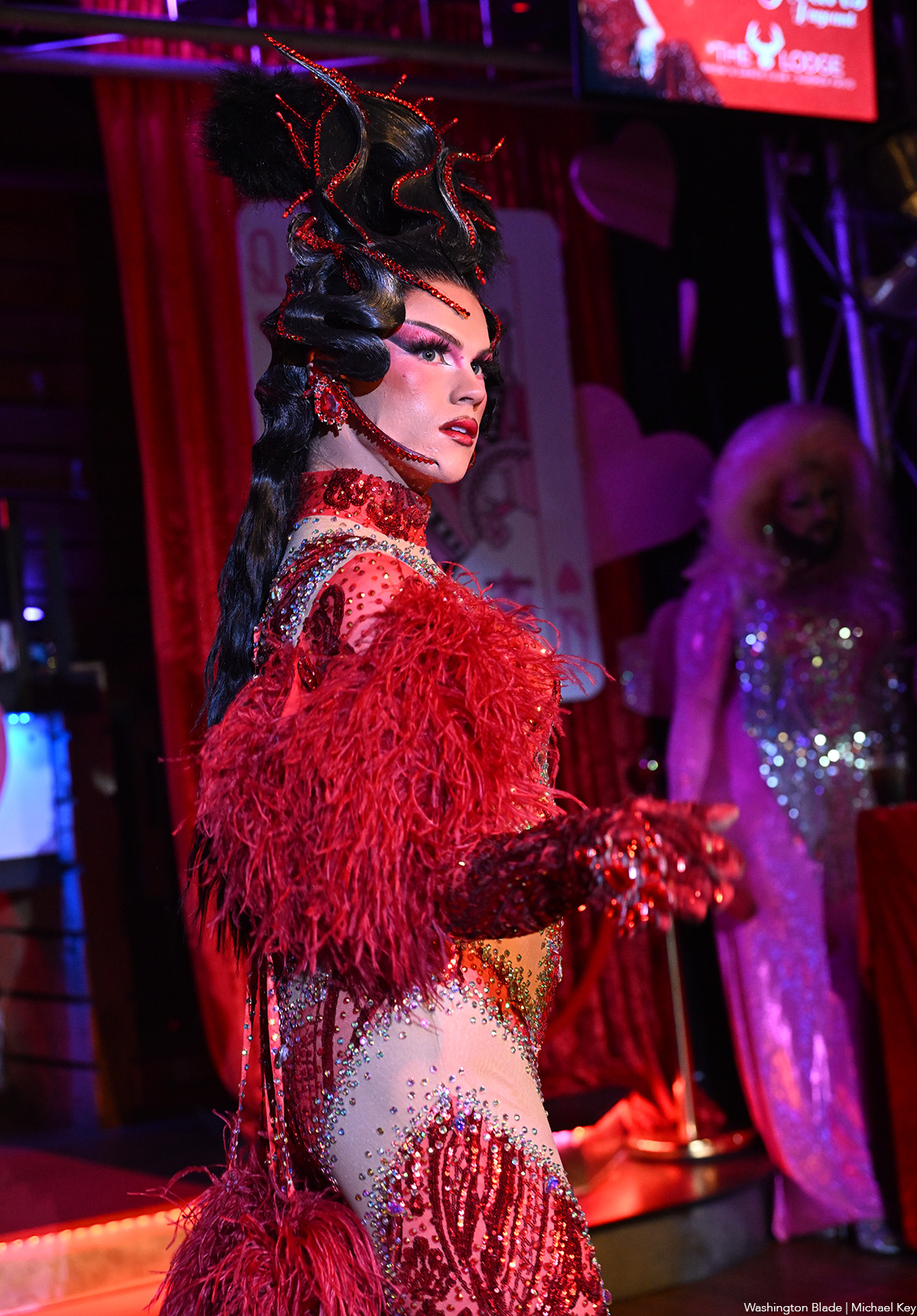
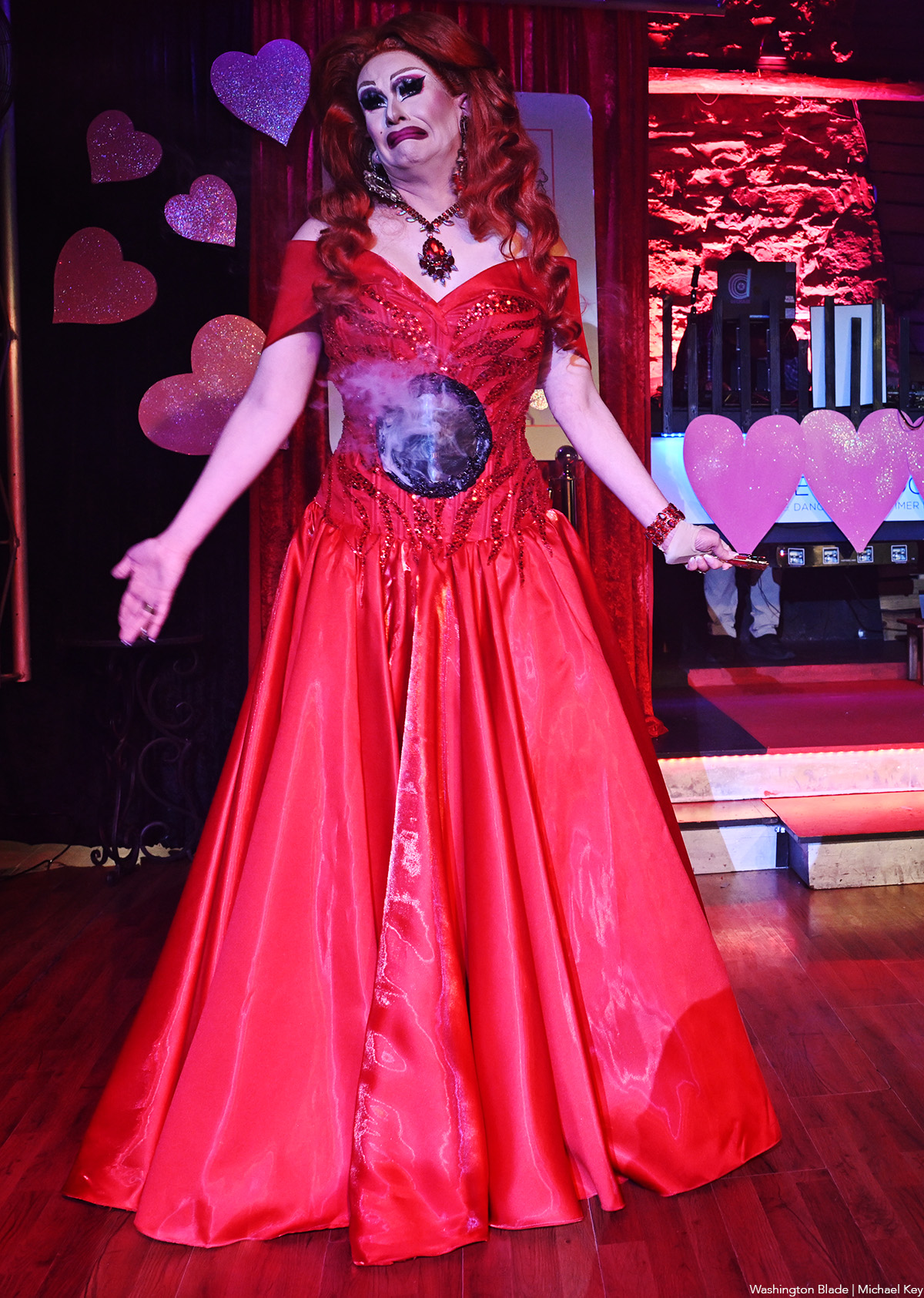
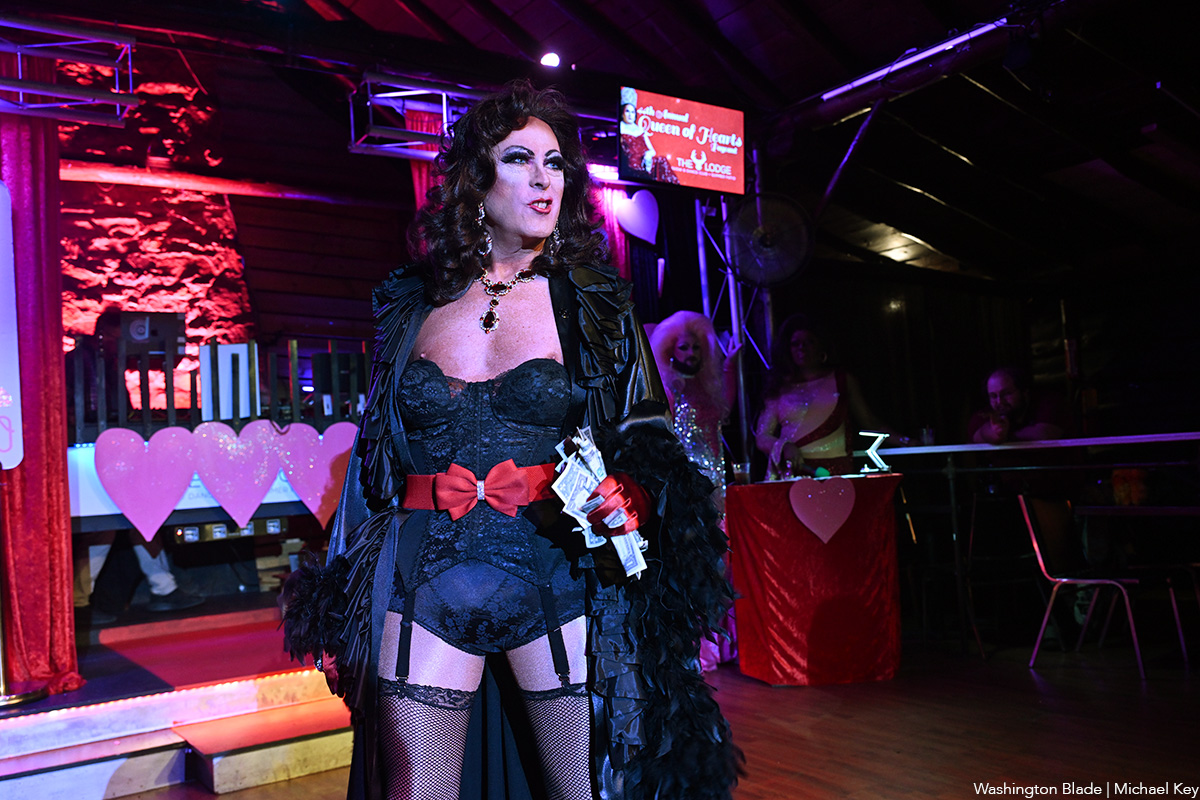
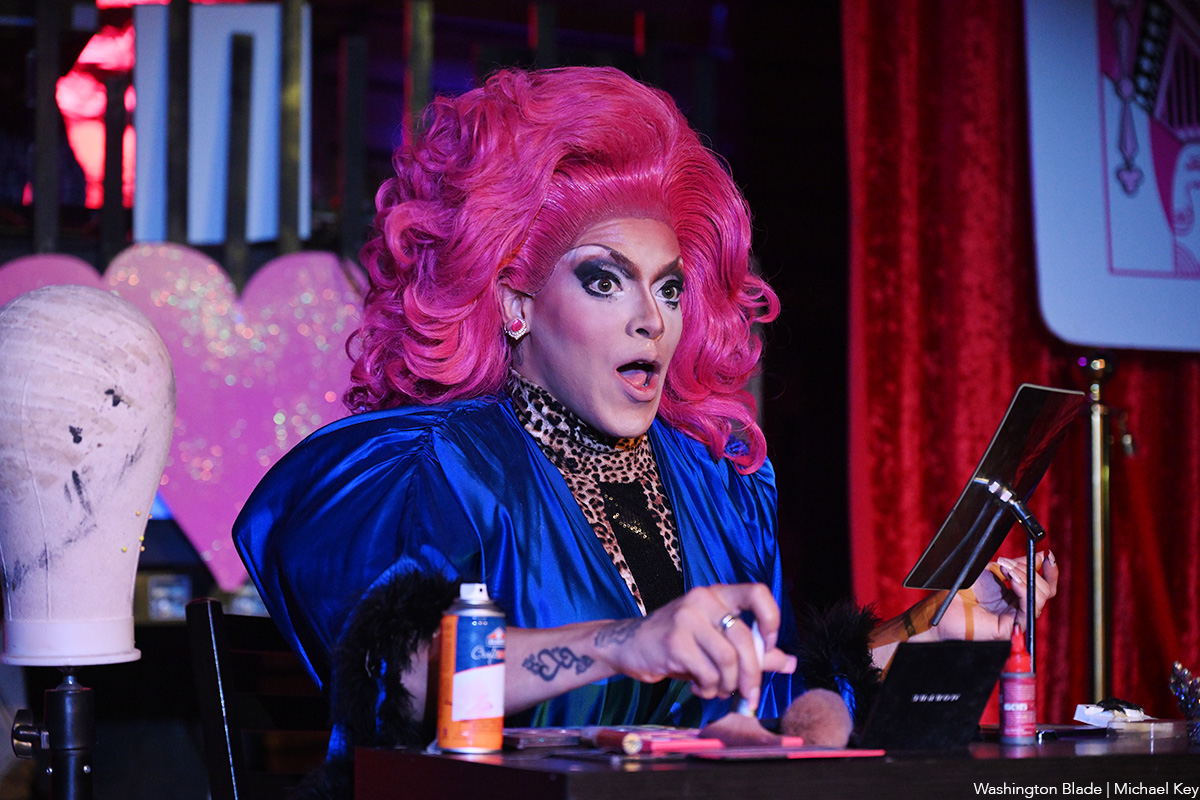


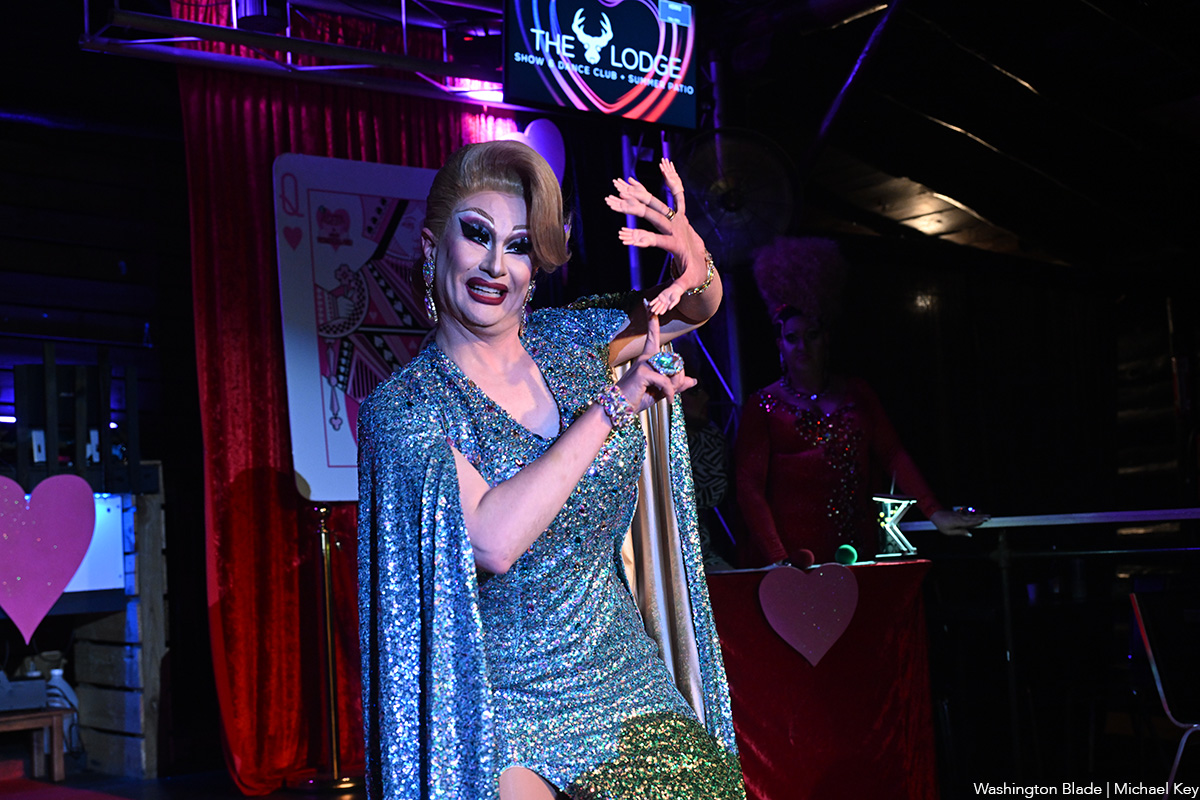
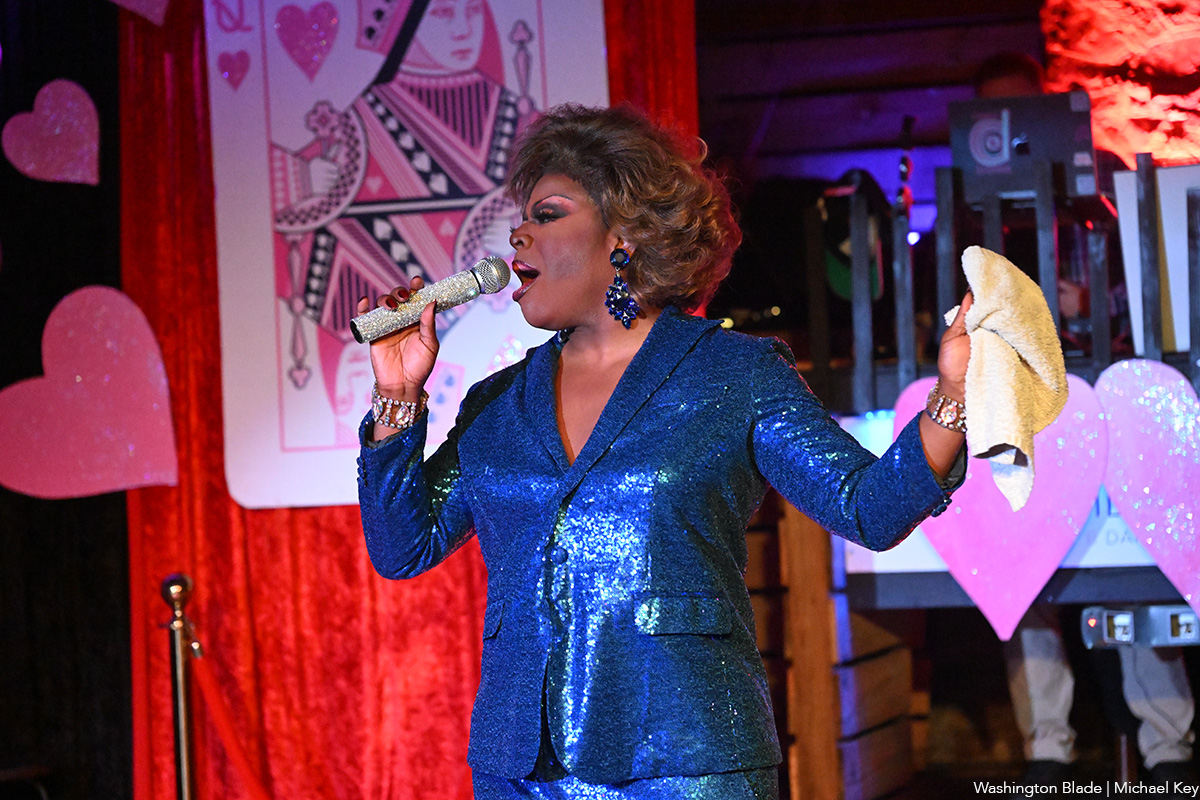

View on Threads




















